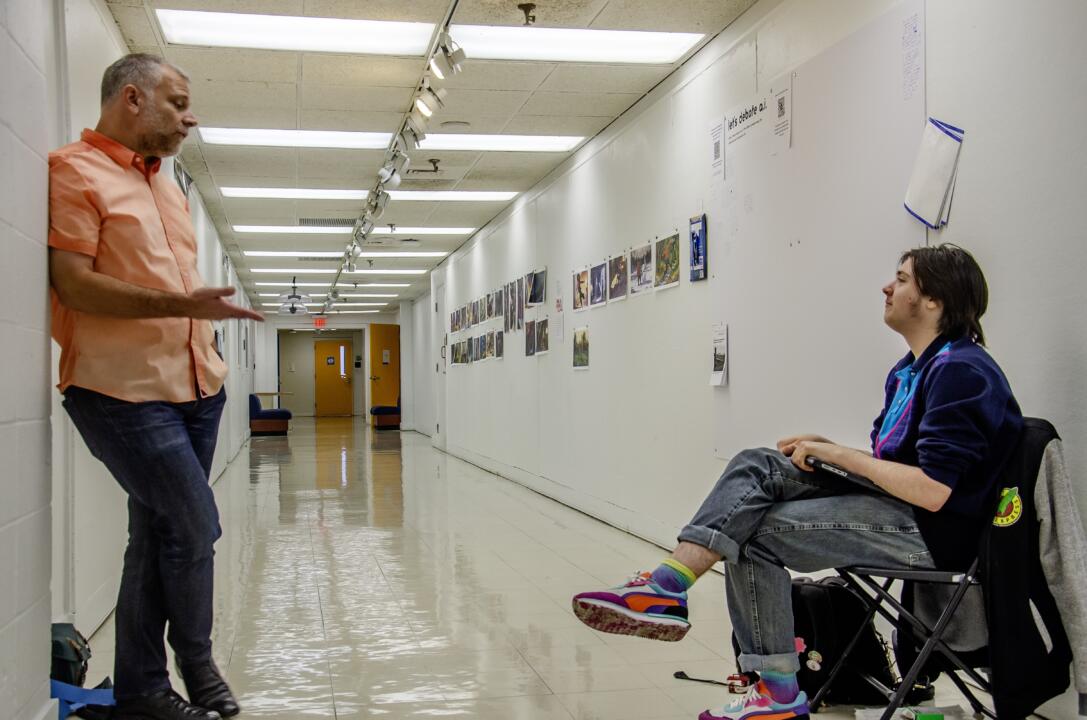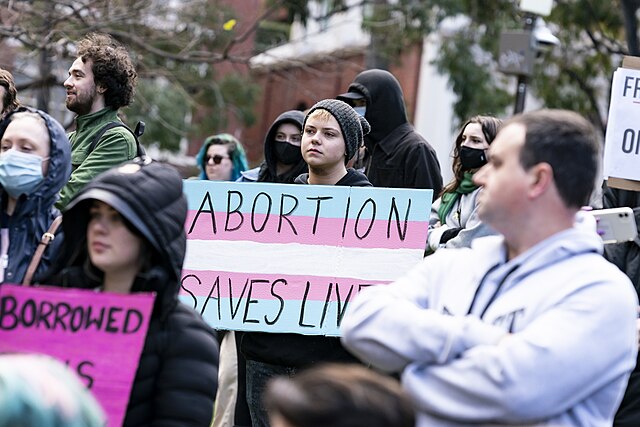“We are a powder keg about to explode,” said junior psychology major Kayla Dunn, quoting a line from the musical “Hamilton“ to describe the tension she felt throughout the University of Maryland, Baltimore County’s Election Night Extravaganza.
A Center for Democracy and Civic Life tradition since 2004, Election Night Extravaganza brings UMBC alumni, students, staff and faculty together to watch and discuss election results in real-time. This year, as a result of the COVID-19 pandemic, the event took place over a Discord server with a live stream from ABC News and a variety of communication channels. Despite the online format, worry and stress amongst the attendees was evident.
Within the first few minutes of the server’s opening at 7 p.m., founding member and current Communications Chair of the Inclusion Council, Chair of the Adjunct Faculty Advisory Committee, Co-Chair of the Retriever Courage Faculty/Staff Advisory Committee and adjunct English professor Robert “Rob” Bennett detailed his nervousness.
“I’ve honestly never been this anxious for an election,” said Bennett.
During his and Vice President Nancy Young’s talk at 9:30 p.m., UMBC President Dr. Freeman Hrabowski expressed his anxiety, telling attendees that he was equally scared of the election’s outcome. However, he added that this fear stemmed from his care for the country and its future.
“Whether you are 20 years old or 50 years old, your heart is pumping. My heart is pumping,” said Hrabowski. “Why? Because we care. Because we care and we believe in this country and we believe in humankind and the fact that people want a better world for all of our children and all of our families.”
Some attendees’ fear stemmed from uncertainty in how millions of mail-in ballots were tallied, around 91 million Americans requesting absentee ballots this year as a result of the pandemic. Watching the ABC News coverage, many attendees discussed the reasoning of calling a state for either candidate when they had counted only a fraction of their votes.
When the broadcasters called Vermont for Biden with only 12 percent of the vote in, junior history major Molly Lea stated that it was too early to call the state for either candidate.
“I just feel that if a network’s going to call a state with less than 20 percent of the vote in, then they better have good reason to believe that it’s not going to swing the other way,” said Lea.
Dunn also questioned the purpose of these early projections, feeling that they caused more stress than giving any concrete answers. Director of the Center for Democracy and Civic Life David Hoffman explained that they serve to get the public to pay attention to the election and to appeal to our curiosity.
“They really are just, in some cases highly, educated guesses and sometimes they go awry,” said Hoffman. “See, for example, the 1948 presidential election and the 2000 presidential election.”
These educated guesses made by networks like ABC News prompted many protests from both Trump supporters and Biden supporters. In Catonsville, Maryland, people lined Frederick Road with signs reading “Every Vote Counts. Every Vote!” and “Protect results.” The Count Every Vote protests were juxtaposed against those in states like Michigan where Trump supporters gathered outside a Detroit mail-in ballot counting location calling for a halt in vote counting.
Besides the talk of stress from incoming and outstanding results, attendees seemed to agree with the 72 percent of Americans that believe politicians care more about being re-elected than their constituents. Senior computer science major Jake Klemp particularly highlighted Americans’ dislike for politicians, referencing a 2013 study that found that 45 percent of American respondents had a higher opinion of cockroaches than Congress.
“Every two years, these same people we like less than cockroaches convince us they care about us and will do what’s best for us and they pit us against each other,” said Klemp.
This frustration extended to the American political system in general. Senior computer science major Jesse Tublin started a debate about the purpose of the electoral college. To Tublin, the historical purpose of the electoral college to “[shut] people up” makes it bad for democracy.
“Politicians only seem to care about those few ‘swing states,’ not the millions upon millions of us who live elsewhere in the country,” said Tublin. “At any given election, the millions of people who live in non-swing states effectively feel like they lack a voice in electing the president, and that to me is just intolerable in a nation that considers itself the greatest democracy in the world.”
Klemp disagreed, saying that the electoral college balances the different needs of rural and urban Americans. To Klemp, using the popular vote would cause politicians to ignore rural area specific-issues since a minority of votes would come from those regions.
“If we only look at the popular vote, many people in rural areas will have city folks determining how they live,” said Klemp.
With many of the attendees’ emotions running high, Hrabowski reminded everyone that the outcome of the election does not seal the fate of the country.
“For those of you that are 20 or 22, know this is one point in our journey,” said Hrabowski. “And it may turn out as you want it or not, but the journey continues.”


